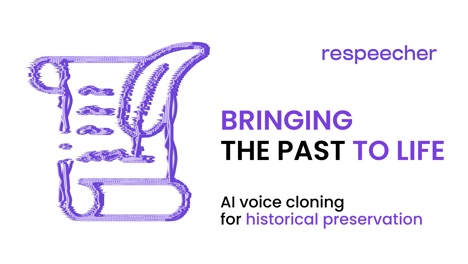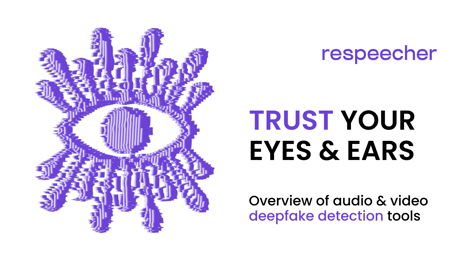The Role of Speech Synthesis in Creating Inclusive Technologies

Creating technologies that cater to all users, including those with disabilities, is not just a matter of compliance but a fundamental aspect of ethical design. Inclusive technology ensures that everyone, regardless of their physical or cognitive abilities, can access and benefit from digital products and services.
This approach enhances user experience and fosters a more equitable and connected society. Speech synthesis, often accompanied by voice cloning, enables the conversion of written text into spoken words, allowing individuals with visual impairments or reading difficulties to access information effortlessly.
Understanding Speech Synthesis and Voice Cloning
Speech synthesis is the technology that converts written text into spoken words. At its core, it involves a process where text input is transformed into an artificial voice output, making digital content accessible through auditory means. Meanwhile, voice cloning is a specialized branch of speech synthesis that replicates a specific person's voice. This technology uses advanced machine learning techniques to analyze and mimic the unique characteristics of an individual's speech, such as tone, pitch, and accent.
Recent speech synthesis and voice cloning accessibility and advancements have significantly enhanced their effectiveness and realism. Innovations in deep learning, particularly the development of neural networks, have revolutionized the field by producing highly natural and fluid speech patterns that closely mimic human speech.
Speech Synthesis Applications in Assistive Devices
Voice AI, encompassing speech synthesis and voice cloning, has become a cornerstone of assistive voice technologies designed to aid communication for individuals with speech impairments or motor disabilities. These technologies empower users by providing them the tools to express themselves clearly and interact with the world around them.
Speech-generating devices powered by AI voice generators utilize speech synthesis to convert text or symbols into spoken words. These devices are invaluable for individuals who cannot speak due to conditions such as amyotrophic lateral sclerosis (ALS), cerebral palsy, or stroke. Users can communicate verbally through the device's voice changer by typing or selecting words and phrases.
Advanced voice assistants integrated with speech synthesis technology offer hands-free operation for individuals with motor disabilities. These assistants can perform various tasks, from setting reminders and controlling smart home devices to accessing information and sending messages, all through voice commands.
Respeecher, a company specializing in voice cloning applications, has made significant strides in enhancing communication for individuals with speech impairments. By leveraging advanced machine learning algorithms, Respeecher can replicate a person's voice, even if the individual can no longer speak. The company has helped patients with speech disabilities recover their voices and revived communication capabilities for patients with Friedreich's ataxia. Also, Respeecher is looking for different ways to restore patients' original voices after having their larynx removed in collaboration with Konrad Zieliński, a Ph.D. student at the University of Warsaw who had lost his voice due to laryngectomy.
Another vital aspect of speech synthesis and voice cloning in assistive devices is the ability to personalize voice settings to suit users' preferences and needs. This customization enhances the interaction between users and technology, making it more intuitive and engaging.
Users can choose from various pre-designed AI voices that vary in gender, age, accent, and tone. This selection allows users to find a voice closely matching their personality or identity, making communication more comfortable and natural.
Advanced voice AI for disabilities enables users to create custom AI voices replicating their natural speech patterns. This feature is particularly significant for individuals who are losing their ability to speak as it allows them to maintain their vocal identity. Moreover, modern AI voice synthesis systems can adapt to different contexts and emotional tones.
Educational Tools and Accessibility
Speech synthesis enhances the learning experience by converting text into spoken audio, enabling students to access information through auditory channels. This approach improves comprehension and fosters independence and inclusivity in educational settings. For students with visual impairments, text-to-speech synthesis provides access to written content that may otherwise be inaccessible.
Voice cloning technology has been integrated into digital educational tools to enhance accessibility in education and engagement for students. For example, educational technologies such as modern learning management systems (LMS) incorporate speech synthesis capabilities to make educational content more accessible. Teachers can upload course materials which were converted into spoken audio for students to listen to. Also, AI in education, such as voice cloning applications, can adapt content delivery based on individual learning profiles. For example, adaptive e-learning platforms can adjust the pace and complexity of speech synthesis based on a student's progress and comprehension level.
Voice cloning is also used in language learning applications to provide authentic pronunciation and speaking practice. Students can listen to native speakers and practice speaking themselves, receiving immediate feedback on their pronunciation and intonation.
"The Impossible Bedtime Story"
Respeecher collaborated with nonprofit organizations to create "The Impossible Bedtime Story," a project aimed at helping children whose parents do not know how to read. This interactive story uses voice cloning technology to let parents narrate a story in their own voice, regardless of their reading level.
Adaptive Interfaces for Broader Accessibility
Adaptive interfaces leverage voice AI for disabilities, including speech synthesis and voice recognition technologies, to provide intuitive and accessible digital experiences for users with diverse disabilities. These interfaces are designed to accommodate different needs and preferences, enhancing usability and inclusivity across various devices and platforms.
For users with motor disabilities, voice AI enables hands-free control and navigation of digital devices. Using voice commands, individuals can interact with software applications, browse the web, and perform tasks that would otherwise require manual input. This functionality promotes independence and efficiency in accessing digital content and services.
Speech synthesis is increasingly integrated into smart home devices and IoT applications to enhance daily living for individuals with disabilities. These integrations leverage voice AI to streamline interactions and provide seamless access to connected environments.
Smart speakers and virtual assistants, equipped with speech synthesis capabilities, enable users to control smart home devices, manage schedules, and access information through voice commands. This functionality is particularly beneficial for individuals with mobility impairments, allowing them to manage their living spaces and routines independently.
Ethical Considerations and Challenges of AI Voice Tech
Voice AI technologies, including speech synthesis and voice recognition, raise some concerns regarding data privacy and security, mainly when utilized in sensitive contexts such as personal information handling or authentication processes. For example, voice AI systems often require collecting and storing voice recordings and associated data to improve accuracy and functionality. Concerns arise regarding the transparency of data collection practices, the purpose of data retention, and the potential risks of unauthorized access or data breaches.
Users must be adequately informed about how their voice data will be collected, used, and shared. Implementing robust encryption protocols, access controls, and regular security audits are essential to mitigate data breaches or unauthorized data access risks. Compliance with relevant privacy regulations and standards further enhances accountability and trustworthiness in voice AI deployments.
Developers are also responsible for prioritizing inclusivity throughout technology development's design and testing phases, ensuring that products and services cater to diverse user groups and their unique needs. Adopting a user-centered design approach which means involving diverse user groups, including individuals with disabilities, throughout the product development lifecycle. Conducting usability testing and gathering feedback from representative users help identify accessibility barriers and inform iterative improvements.
Conclusion
Speech synthesis and voice cloning technologies have profoundly transformed the technology landscape by fostering inclusivity and accessibility across diverse user groups. These advancements enable individuals with disabilities, such as visual impairments, motor disabilities, and speech disorders, to access information, communicate effectively, and engage with digital content in previously challenging or impossible ways.
Future innovations in voice AI hold promising prospects for further enhancing accessibility and user experience. Advances in natural language processing (NLP) and understanding will enable voice AI systems to interpret and respond to complex commands and inquiries more accurately and intuitively. Meanwhile, integrating emotional intelligence into voice AI technologies will allow devices to recognize and respond to emotional cues in speech. Contact Respeecher to find out how these technologies can help your business today.
FAQ
Speech synthesis is the translation of written language into voice, usually through AI voice synthesis. It aids assistive voice technologies by offering content to disabled individuals through voice AI technologies, which facilitates communication and adaptive interfaces.
While speech synthesis provides words spoken from text, voice cloning imitates a person's voice. Voice cloning is used to enable one-on-one communication and in assistive voice technology to assist people with speech disability so that they are able to maintain their own unique vocal identity.
Disability Voice AI supports speech-generating devices and assistive voice devices, enabling speech or motor disability individuals to communicate and interact with the world and drive inclusive technology.
Voice synthesis and voice recognition technology-based adaptive interfaces make the device accessible with voice command control and interaction, making disabled people independent.
Respeecher voice cloning is employed to enable individuals with speech disorders to restore their original voices so that they can speak in patients with diseases like Friedreich's ataxia. Lost voices are restored using voice AI, and assistive voice technologies are enhanced.
Voice AI technologies, such as speech synthesis and voice recognition, raise data security and privacy issues, especially sensitive data. Ethical concerns are about transparency, data usage, and providing inclusive technology to all users.
Voice synthesis enhances educational accessibility tools, such as text-to-speech for blind students, to make learning easier by reading written content out loud, enhancing inclusivity, and facilitating easier understanding.
The future of AI voice synthesis has a lot in store for us in speech recognition, opening up to more human-like assistive voice technology. The integration of emotional intelligence with education accessibility technology will render inclusive technology and AI personalization all the better.
Glossary
Speech synthesis
Voice cloning
AI-powered assistive devices
Adaptive interfaces
Ethical AI development

- AI voice synthesis
- speech synthesis
- AI voice
- AI voice generator
- voice cloning applications
- text to speech
- voice changer
- Respeecher for Business
- voice ai
- text-to-speech voice synthesis
- AI in education
- accessibility in education
- digital education tools
- e-learning
- educational technology
- inclusive technology
- voice cloning accessibility
- voice AI for disabilities
- assistive voice technology





